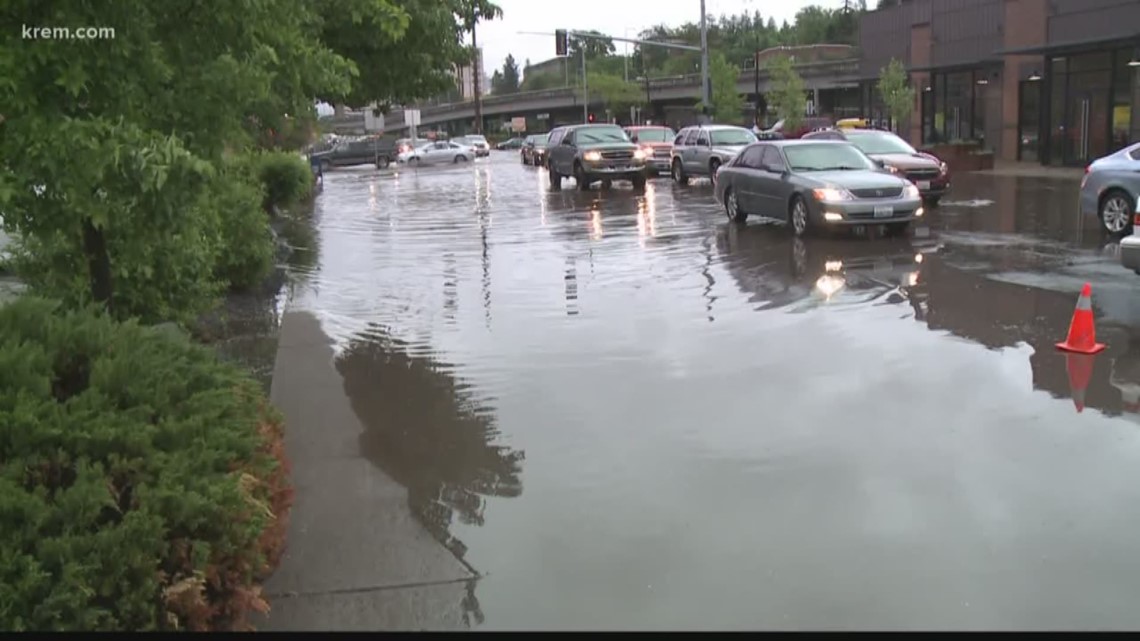SPOKANE, Washington — Spokane’s newest stormwater tank was not ready for Thursday’s rainstorm, according to city spokesperson.
Spokane Falls Boulevard reopened last week after being closed for two years due to the construction of a new stormwater tank. The tank is built to hold 2.2 million gallons of water.
Some thought the new tank would have alleviated the massive flooding in downtown that took place Thursday evening.
Turns out, the new tank is not quite ready to take on water. According to a city spokesperson, the tank is complete, but construction crews are still working on the piping to hook it up to the sewer lines.
For years, the city has worked to improve its wastewater system. And city leaders have invested millions into the effort to keep the Spokane River free of potentially toxic stormwater. The tanks are meant to hold untreated stormwater and raw sewage until it can be treated.
“It's not the water itself, it's what it picks up when it travels on the street and through parking lots, road oils, dirt, it's debris,” City Spokesperson Marlene Feist said.
During Thursday’s rainstorm about ten of the city’s tanks overflowed.
“The volume of water was absolutely tremendous. Those tanks are designed to handle pretty good size storms, but may not where we get an inch of water in 20 minutes. We can't build systems large enough to handle that volume of water," Feist said.
Two other tanks near East Sprague are still under construction. And another at First and Adams collected some water, but it is not finished.
"Everyday we think about what storm water means to our river and we are trying to take steps each and every day to improve that quality of water,” Feist said.

